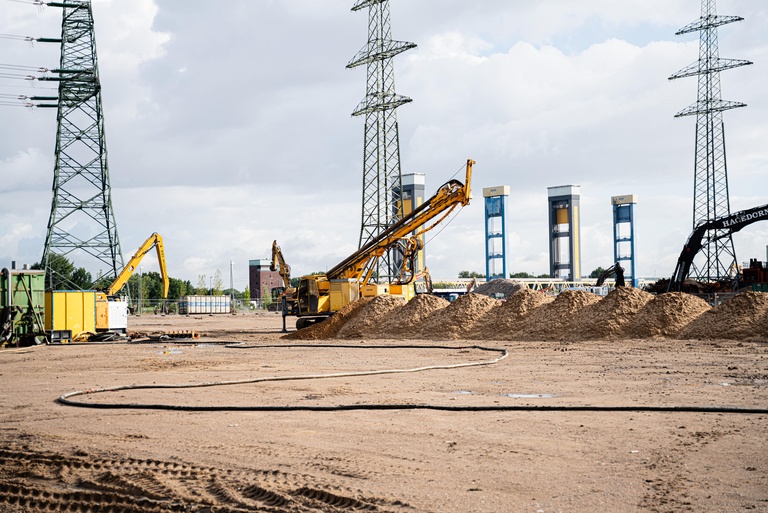Hamburg, November 12, 2025. Hamburg is taking a major step toward decarbonizing its industrial sector with the construction of the Hamburg Green Hydrogen Hub (HGHH), a large-scale facility featuring a 100-megawatt electrolyzer. Drees & Sommer, a global consulting company active in the real estate, infrastructure, and industrial markets, is responsible for project, construction, and engineering management on behalf of consortium partners Luxcara and Hamburger Energiewerke.
Precise planning for complex technology
Drees & Sommer has been commissioned by HGHH to provide technical project and engineering management for the 100-megawatt electrolyzer. This includes coordinating the various disciplines – from planning and execution through to preparation for commissioning.
Leading the implementation is the team headed by Alexander Stubinitzky, Head of Hydrogen and Synfuels at Drees & Sommer, which coordinates the different companies responsible for planning the individual plant components.
“Building a hydrogen production plant involves far more than just the electrolyzer. We coordinate all disciplines, from civil and structural engineering to process, electrical and automation engineering, and ensure that planning, assembly, quality assurance, and commissioning are fully integrated,” says Stubinitzky. “We also draw directly on our experience from other large-scale projects, such as the 320-megawatt electrolysis plant in Emden and the e-fuel test platform for the German Aerospace Center in Leuna, for instance in optimizing interfaces and workflows.”
Hydrogen as the key to climate neutrality
“If we want to produce CO₂-neutral products, supply chains and production also need to be CO₂-neutral. Hydrogen is a key technology for reducing emissions, especially in energy-intensive sectors such as industry and transport. The HGHH shows how this transition can be successfully achieved,” emphasizes Alexander Stubinitzky. “For the energy transition, it is crucial that projects are implemented efficiently. The faster plants are connected to the grid, the sooner they can contribute to CO₂ reduction.”
Preparatory construction work for the HGHH’s 100-megawatt electrolyzer has been underway since mid-2025 on the site of the former coal-fired power plant in Hamburg-Moorburg. Commercial hydrogen production is scheduled to begin in 2027. Once operational, the facility is expected to produce up to 10,000 tons of green hydrogen annually, powered entirely by renewable energy sources.
Part of the European hydrogen strategy
The HGHH is one of the so-called Important Projects of Common European Interest (IPCEI), projects that receive targeted EU support because they advance strategic goals of the energy transition. According to the European Commission, 22 EU Member States plus Norway jointly design and coordinate the IPCEIs on hydrogen. In Germany, there are 62 hydrogen-related IPCEI projects, with costs shared between the federal government and the respective federal state.
